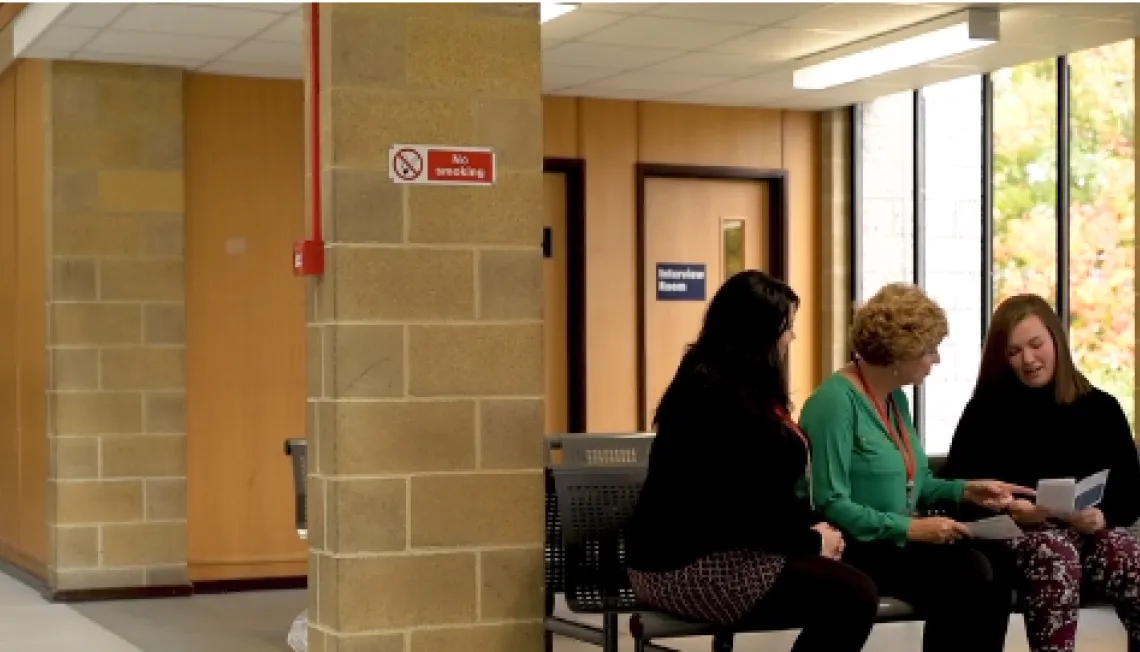Carole Edwards, CEO of CASSPLUS, told us about the court-based community advice service in Devon and Cornwall.
Many of the people who come through our magistrates’ courts commit low-level offences like drunk and disorderly conduct— and go on to commit them again and again. The offences themselves may seem minor but they end up absorbing a good deal of the criminal justice system’s resources. Typically, the seriousness of the offences means that they receive fines or conditional discharges. But very often the people who receive these sentences end up returning to court— latest figures show that over 40% of fines imposed are outstanding after 18 months and 33.5% of those receiving a conditional discharge re-offend within a year.
CASSPLUS seeks to break that cycle. Many of the people caught in the vortex of offending struggle with debts, housing, unemployment, mental health and alcohol problems. CASSPLUS offers a wide range of services for their clients: practical support with issues like fines or benefits, information on the workings of the criminal justice system or help to access support services to address the issues which bring people to court. They work with the courts, police and probation service to ensure that court orders are obeyed in order to reduce reoffending and create long-term savings for the justice system.
CASSPLUS has been widely recognised as an outstanding example of early intervention in the justice system and in 2017 received the Queen’s Award for voluntary service.
The work of CASSPLUS
They made me feel like a human being again. I honestly think I would be dead if it wasn’t for CASSPLUS coming to see me down in the cell and starting to help me. I would have gone back to prison and I would have died in there. They made me feel useful and I’ve turned a negative into a positive. I have been dry for two years now. I help to run a local AA meeting. I’m involved in pantomimes at the local theatre. I volunteer on the soup run.
Stevie, CASS Client
Operating in five magistrates’ courts in Devon and Cornwall - Plymouth, Newton Abbot, Bodmin, Truro and Exeter - CASSPLUS provides on-the-spot advice, direct support with practical problems and referral into long-term support for chronic issues like debt, addiction or mental health. The service is open to any court user who needs it: whether they are a defendant, a witness or the family member of someone appearing in court. CASSPLUS services are delivered by paid co-ordinators who oversee a team of volunteers who receive training and support in identifying and responding to a range of issues that clients are facing, including mental illness and dual diagnosis.
CASSPLUS has been operating in Devon and Cornwall magistrates’ courts for almost 20 years, with its first service opening its door in Bodmin magistrates’ court in 2005. The service was initially run by Prisoners Advice and Care Trust (PACT) before moving to Rethink Mental Illness and then eventually becoming an independent charity in 2015.
CASSPLUS clients
CASSPLUS clients often face a range of complex needs underpinned by poverty. A 2014 review of the CASSPLUS caseload showed that:
- 40% of CASS clients were on disability benefit or long term sick and a further 28% were identified as out of work
- 25% identified as having housing problems
- 22% identified as having debt problems
70% of the support CASSPLUS provides comes in the form of direct intervention with clients or emotional support, advice and information, while 30% consists of referrals to more specialist support. Where cases were referred out, 41% of CASSPLUS clients attended their first appointment, compared to 29% in similar projects (the court service’s pilots in 2010/11).
Core strengths of the service
A 2017 process evaluation included interviews with a range of stakeholders to assess the impact of the service. They identified a number of core strengths of the CASSPLUS model:
- The ability to support complex, multiple needs and ‘triage’ for immediate support;
- A flexible, genuine multi-agency and client-focused approach to service delivery;
- The ability to respond constructively to a changing criminal justice landscape, by:
- Reacting to a reduction in legal aid funding through the provision of offender support and advocacy at court;
- Adopting a flexible on-site response to requests for support from wider court users attending Tribunal and Family cases without representation;
- Taking on some of the more pastoral work previously provided by the Probation Service at court and in the community.
- The impact on Her Majesty’s Courts and Tribunal Service (HMCTS)
- A proactive role in Magistrates’ decision-making through the provision of additional case information and referral to sustained support post-hearing, which in turn has the potential to enhance court efficiency and reduce case attrition and court costs.
- A friendly, well-informed and resourceful presence within court buildings.
- A sound understanding of the relationship between offending and victimisation and the capacity to support clients who are experiencing both, simultaneously,
- The application of a problem-solving model that can be transposed into different settings and sectors including criminal justice, health and social care and education.
Evaluation
A process and outcomes evaluation of the service was conducted in 2020. This interim report sets out the findings of the process evaluation, which found the CASS+ model to be affordable and effective. The final report, published in April 2022 documents the findings of the process and outcomes evaluation of the service, conducted by Crest Advisory, such as interaction with the service improving client wellbeing and their ability to navigate the court system, and reducing demand on criminal justice system partners.
If you like to learn more about the service, please contact Carole Edwards – CEO, CASSPLUS at carole.edwards@cassplus.org
This case-study was compiled in 2020
